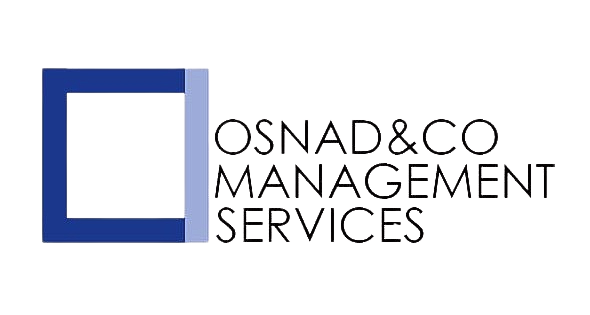All across the world, sustainability has become as an increasingly important area of public concern. The concept, which emerged in the late 1980’s through the United Nations’ World Commission on Environment and Development, has experienced a tremendous increase in public support leading to a modern surge in advocacy and fiscal programmes geared towards the preservation of the environment and natural resources. In fact, while the world has witnessed a significant increase in advocacy and fiscal programmes geared towards sustainability, a considerable number of people around the world still struggle to understand the concept of corporate sustainability, which has instigated a poor integration of the concept in the activities of business organizations globally.
As a modern archetype of the age-old concept of sustainability, corporate (or business) sustainability is a concept which embraces the United Nation’s concept of “sustainable development” and the ideation of “responsible business leadership”. The concept, which is generally a business approach which harmonizes environmental protection and social responsibility with business profitability, involves the implementation of strategies aimed at minimizing the potential negative effects of by business organizations on the society and the environment at large. In fact, while this is imperative as a result of the increasing negative impact of the activities of business organizations on the environment, is vital to businesses due to the need to sustain (preserve) the environment and natural resources from which all factors of production are acquired in order to meet future needs.
Consequently, with business organizations having a significant role to play in the drive towards sustainability, the impacts of business organizations around the world, particularly of small and medium-sized enterprises in this drive remain to be realized. In fact, pursing sustainability solitarily as a business entity is significantly challenging. This is because, not only does it require considerable commitment of personnel and financial resources, but it also require significant amount of time, planning and efforts. That notwithstanding, the quest of corporate (or business) sustainability is a challenge which is worth pursuing as a result of its potential reward.
Becoming sustainable as a business enterprise has several benefits it offers business organizations around the world. While a significant number of the benefits of corporate sustainability are intangible, it equally offers financial rewards to business organizations by providing them opportunities to cut costs, improve bottom line and gain competitive advantage in the long-term. For example, as a contemporary concept in business, corporate sustainability programs do not only help business organizations improve their profitability through cost savings and improved efficiencies, but also, they help provide firms with competitive advantage through enhanced brand image and product advertising, higher employee satisfaction and retention and increased shareholder value and investment.
Accordingly, pursuing sustainability as an entrepreneur, business owner or manager is not only good for the environment and/or society at large, but similarly, having sustainability embedded in the operations of your business is beneficial to your business enterprise itself. With the above establishing the need for businesses to embrace sustainability in operational activities, a challenge remains on how business organizations can embed sustainability in their operations. In fact, while a lot of strategies and approaches exist for companies to embrace sustainability and implement same in their workplaces, there is no one right strategies and/or approaches on corporate or business sustainability. However, as stated earlier considerable amount of time, efforts and planning must be committed by businesses towards this agenda.
To help get you started, here are a few tips for you.
- Alignment of sustainability and overall strategy of business – To embed and implement sustainability into the operations of business enterprises, entrepreneurs, business owners and executives generally must make considerable efforts geared towards aligning the sustainability efforts and programs of their organizations with their overall strategy. This, which will help ensure that significant planning goes into the development of the sustainability programs of businesses, will also help enterprises generate a genuine commitment of all personnel towards achieving sustainability.
- Creation of sustainability teams and/or committees –The second important way by which business organizations across the world can embed and implement sustainability into their operations is through the creation of a sustainability committee which will be tasked with the development of the overall sustainability program of the enterprise. This can be done through the appointment of a team of volunteers who are responsible for sustainability initiatives in the workplace.
- Digitization of operations – Digitization of operations is also another important way by which companies can become sustainable. Digitization is vital because not only does it help streamline operations, it also helps organizations cut costs by reducing the amount of money firms spend on office stationery and waste management. Accordingly, through the use of computers, smartphones, and other devices in the workplace, business organizations can become more sustainable.
- Waste minimization – Another means by which business organizations can integrate sustainability into their operations is through the adoption of waste minimization or source reduction activities. Source reduction or waste minimization is an important means by which business enterprises can achieve sustainability as a result of their role in the prevention of pollution and reduction in greenhouse gas emissions. Consequently, by deliberately eliminating or decreasing the volume waste generated, firms can help protect the environment.
- Recycling – To achieve sustainability, entrepreneurs, business owners and executives can also adopt recycling in their management of waste. Recycling, the process whereby organizations recover and reprocess (convert) unwanted materials into new products, is crucial for companies which desire to become sustainable. Recycling is not beneficial only as a result of the key role it plays in keeping waste materials from dump and landfill sites, but also, it helps create jobs, preserve the environment and conserve valuable natural resources.

